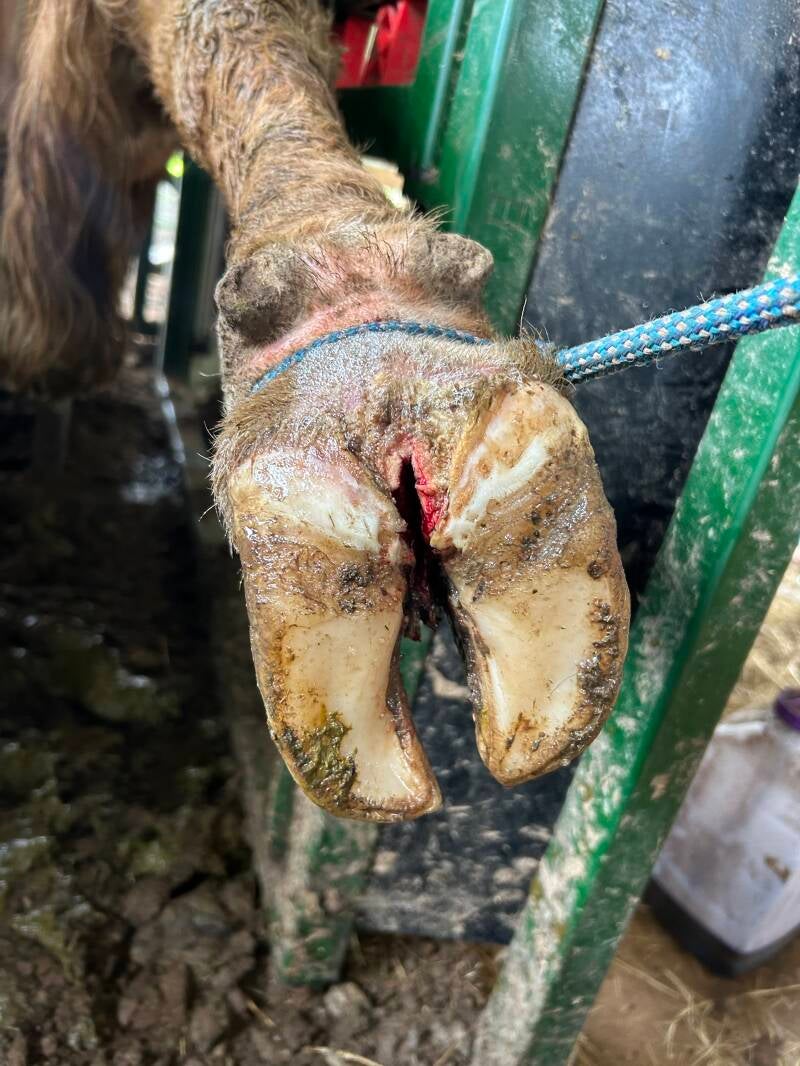
This week, I got to know my co-workers and started to learn more about them. My co-worker, Trey Aycock, is pictured to the left with his horse, Packman. I also work with Brant John son a fellow cattle farmer. Finally, my boss is CJ O'Mara. CJ worked with the University of Georgia for many years with their cows and farm. As far as responsibilities and duties, Trey and Brant check the cows daily and make sure they have water, feed, and enough grass for the week. They also do a routine check to make sure none of the calves or cows are injured or in need of doctoring. CJ usually plans out the week rotation and makes sure we have the equipment/feed for the week in order to make sure we keep an exact schedule of when to doctor and tend to the cows. For the most part, we all work together throughout the week to make each group work and comfortable for the weekend, then start back Monday to assess the rotation for the week.

I have a lot to learn in the weeks going forward, and these guys will help with that. CJ and Trey have many years of experience doctoring cows and calves, and also have the knowledge of what is to come in the different seasons of the year. Between the three guys, they come up with many creative ways to improvise when a surprise happens on the farm. Working on a cattle farm offers a unique opportunity to learn a wide range of practical and interpersonal skills from your coworkers and the farm manager. From your coworkers, you can gain hands-on experience in daily farm operations such as feeding, herding, and caring for the livestock, as well as valuable teamwork and problem-solving skills that come from working closely in often physically demanding conditions. Observing their techniques and work ethic can teach you efficiency, adaptability, and the importance of communication in a fast-paced environment. From the farm manager, you can learn about the broader responsibilities of running a farm, including planning, livestock health management, budgeting, and overseeing operations.
My co-workers and the farm manager play crucial roles in the success of a cattle farm by working together to ensure that daily operations run smoothly and efficiently. Coworkers contribute through their hard work, consistency, and attention to detail, performing essential tasks such as feeding, cleaning, monitoring animal health, and maintaining equipment. Their teamwork and ability to communicate effectively help keep the farm organized and responsive to any issues that arise. The farm manager, on the other hand, oversees the entire operation, making strategic decisions about breeding, nutrition, healthcare, and finances. They provide guidance, training, and support to the team while also planning for the long-term sustainability and profitability of the farm. By leading with experience and coordinating the efforts of all workers, the manager ensures that everyone is aligned with the farm’s goals. Together, the dedication and collaboration of both coworkers and the manager form the foundation of a successful and productive cattle farm.

Add comment
Comments